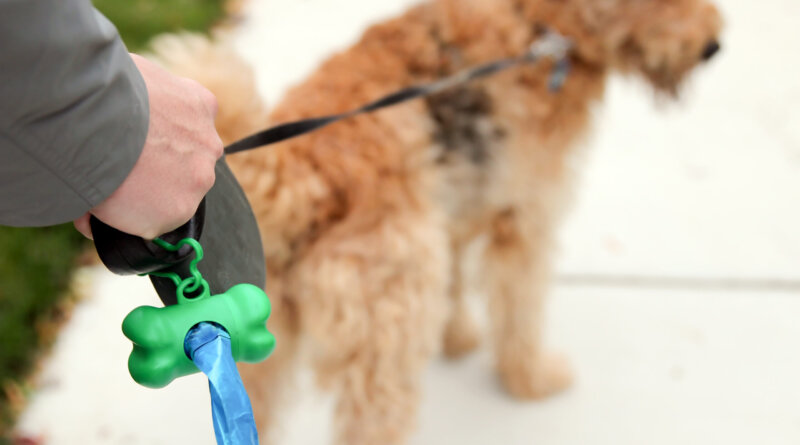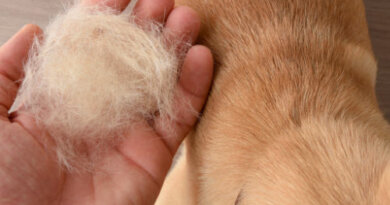What Does It Mean – Top Dog Tips
This article will discuss a certain kind of stool, oily dog poop or greasy dog poop, and the possible causes and solutions for this condition.
As a loving and responsible dog owner, it’s important to know how your furry friend is doing, which includes understanding the significance of their poop.
While it may seem trivial, your dog’s poop can provide valuable information about its overall health.
By paying attention to changes in your dog’s stool, you can detect potential health issues early on and take appropriate action.
So, let’s jump right into the surprising truth about dogs with oily poops.
Oily Dog Poop: What Causes It?
Let’s explore the factors that can lead to greasy, oily stools. The common cause of dog greasy poop is excessive fat consumption or a sudden change in diet.
That can result in steatorrhea, where the body cannot break down and absorb fat properly, leading to oily feces.
Other possible causes of oily dog poop include underlying health issues such as pancreatitis, liver disease, or intestinal malabsorption syndrome.
Occasionally, parasites or bacterial infections can also lead to greasy dog poop. Identifying the root cause of your dog’s oily poop is essential to address the issue effectively.
Understanding Normal Dog Poop Consistency
Before we delve into the specifics of oily dog poop, it’s crucial to understand what normal dog poop should look like.
A healthy stool should be well-formed, moist, and easy to pick up, with a chocolate-brown color.
While it’s normal for dog poop to vary slightly in color and consistency based on diet and other factors, significant deviations from this standard may indicate a problem.
Various factors, such as food quality, hydration, and exercise, can impact your dog’s stool consistency.
It’s essential to ensure your dog has a well-balanced diet, adequate water intake, and regular physical activity to maintain healthy digestion and bowel movements.
The Role of Mucus in Dog Poop
Mucus is a normal component of a dog’s digestive system, as it helps to lubricate the intestines and facilitate the passage of stool.
However, excessive mucus in dog poop may indicate an issue.
Dog poop with mucus casing is frequently a sign of intestinal inflammation or irritation, resulting from various factors like stress, allergies, or infections.
Mucus production can also increase when the body tries to expel foreign substances or irritants, like parasites or undigested food particles.
Monitoring your dog’s poop for changes in mucus content is essential, as this can provide valuable insight into their digestive health.
Health Concerns Related to Oily Dog Poop
As mentioned earlier, oily dog poop may indicate inflammation or irritation in the intestines, and this can result in several health concerns, including:
Inflammatory bowel disease (IBD) – A chronic condition characterized by inflammation in the intestines, which can lead to mucus production and greasy stools.
Colitis – A colon inflammation that can produce mucus, diarrhea, and abdominal pain.
Food allergies or intolerances – Some dogs may react adversely to certain foods or ingredients, leading to digestive issues like mucus production and oily stools.
Parasitic infections – Intestinal parasites such as worms, giardia, or coccidia can cause irritation and inflammation in the intestines, producing mucus and greasy stools.
How to Identify and Analyze Oily Dog Stools
To identify oily dog poop, start by observing your dog’s stool for changes in color, consistency, and content.
Greasy or oily stools may appear shiny or slick, with a distinct, unpleasant odor. Suppose you notice an increase in mucus or a change in the consistency of your dog’s poop.
In that case, monitoring their bowel movements closely and consulting with your veterinarian if the issue persists is essential.
When analyzing your dog’s stool, consider diet, exercise, and overall health.
Keep track of the changes in your dog’s routine that may contribute to greasy stools, such as new foods or medications.
Preventative Measures and Solutions for Greasy Dog Poop
To prevent and address oily dog poop, consider the following steps:
Provide a well-balanced, high-quality diet
Ensure your dog’s food meets its nutritional needs and avoids excessive fat content.
Gradually introduce new foods
When changing your dog’s diet, introduce fresh foods slowly to avoid shocking their digestive system.
Maintain proper hydration
Make sure that your dog always has access to fresh water so that you can support a healthy digestive system.
Regular exercise
Physical activity is beneficial to maintain overall digestive health and encourages regular bowel movements.
Parasite Prevention
Ensure your dog’s vaccinations and medications to prevent parasites are always up to date.
Regular vet check-ups
Schedule routine veterinary visits to monitor your dog’s overall health and address potential issues early on.
When to Consult a Veterinarian About Oily Dog Poop
If you notice persistent dog poop with mucus casing or greasy stools, it’s essential to consult your veterinarian.
They can help determine the problem and suggest the best treatment.
Sometimes, your vet may recommend diagnostic tests such as blood work, fecal analysis, or imaging studies to determine what is causing your dog’s digestive problems.
It’s crucial to address the issue early to prevent complications and ensure your dog’s long-term health.
Oily Dog Poop: Conclusion
In conclusion, oily dog poop or greasy stools can indicate various health concerns.
By understanding the causes and solutions for oily dog poop, you can take the necessary steps to maintain your dog’s overall digestive health and well-being.
Consult your veterinarian if you notice persistent greasy dog poop or mucus in your dog’s poop. Early intervention is crucial to ensuring your furry friend’s long-term health.
READ NEXT: Dog Poop Color Chart: What It All Means







